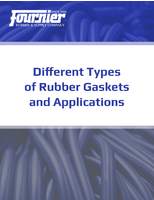Anti-Tamper Lock protects assests and prevents accidents.
Press Release Summary:
Ensuring valves and actuators are operated by authorized individuals, Anti-Tamper Lock (ATL) secures companies' assets by reducing risk of human error or deliberate tampering. Stainless steel housing is coated with yellow polyester resin, and internal components are manufactured from either stainless steel 304 with acetyl bearings or hardened steel with protective security skirt. Both versions operate in temperatures from -58 to +212°F.
Original Press Release:
New Anti Tamper Lock Protects Assets and Prevents Accidents
(Erlanger, KY) - By ensuring valves and actuators are only operated by authorized individuals, the new Anti-Tamper Lock (ATL) from Smith Flow Control secures companies' assets by reducing the risk of human error or deliberate tampering.
The way the ATL works is very simple: the standard condition of the device in service is locked (key-free), with the handwheel free-rotating. (The standard unit is available in two sizes to suit all lever and handwheel operated valves). Operation involves three simple steps: firstly, a coded key from the control authority is inserted, engaging the drive; secondly, the valve is operated to the desired position; finally, the key is removed and the valve is locked in the desired position.
Because the lock base adapter is machined to suit host equipment (which can be done on-site or supplied already machined to specification) the ATL significantly reduces costs. Also, as this process simply replaces existing handwheels or levers, the integrity of pressure envelopes is not compromised in any way.
Because the ATL is only installed and commissioned once, permit to work and lock-out/tag-out authorities can focus their attention on other matters rather than worrying whether the engineer has installed the lockout device correctly.
The ATL's housing is stainless steel coated with yellow polyester resin. For safety applications the internal components are manufactured from stainless steel 304, with acetyl bearings, while for security applications these components are manufactured from hardened steel, with a protective security 'skirt'. Both versions can operate in temperatures ranging from -58°F to +212°F (-50°C to +100°C).




